Is It Safe to Eat Pomegranate and Drink Pomegranate Juice During Pregnancy?
When you're pregnant, you might wonder about the safety of eating pomegranates or drinking pomegranate juice. These fruits are packed with nutrients that can benefit both you and your baby, but it's essential to understand how to enjoy them wisely. While they offer advantages, there are also some risks you should be aware of, especially regarding portion sizes and potential allergies. So, what should you keep in mind before adding pomegranates to your diet? Let's explore the key factors that could impact your choices.
Nutritional Benefits of Pomegranate

Enjoying pomegranates during pregnancy can provide a wealth of nutritional benefits that support both you and your developing baby. These little gems are packed with vitamins and minerals, making them a fantastic choice for your growing needs.
First off, pomegranates are high in vitamin C, which helps boost your immune system. You definitely want to stay healthy during this time!
They're also rich in antioxidants that fight off those pesky free radicals, keeping your body in tip-top shape. Plus, pomegranates have a good amount of fiber, which can help with digestion. You might appreciate that, especially if you're dealing with pregnancy-related tummy troubles!
Another great benefit is their folate content. Folate's super important for your baby's brain development, so munching on pomegranates is like giving a gift to your little one.
And let's not forget potassium, which can help regulate your blood pressure.
Risks of Consuming Pomegranate
While pomegranates offer numerous health benefits, there are some risks to weigh during pregnancy. First off, you should be aware that pomegranates can cause allergic reactions in some people. If you've never eaten them before, it's best to start with a small amount to see how your body reacts.
Another thing to reflect on is the potential for pesticide exposure. Pomegranates can carry residue from pesticides, so it's super important to wash them well or choose organic options when possible. You wouldn't want to share any unwanted surprises with your baby, right?
Additionally, if you have a history of certain medical conditions, like diabetes, you might want to keep an eye on your pomegranate intake. These juicy fruits are sweet, which can affect your blood sugar levels.
Lastly, consuming too much of anything can be a problem. Eating excessive amounts of pomegranate can lead to digestive issues, like upset stomach or diarrhea.
Pomegranate Juice vs. Whole Fruit
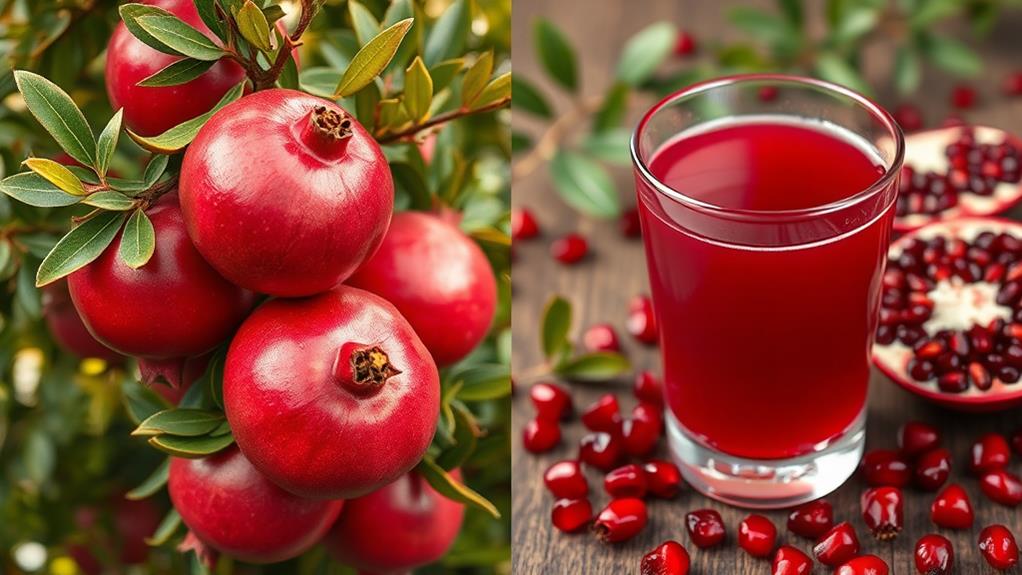
When it comes to choosing between pomegranate juice and the whole fruit, both options have their unique benefits and drawbacks.
If you're in a hurry or just want something easy, pomegranate juice can be super convenient. You can sip it while you're on the go, and it's packed with antioxidants. However, you might miss out on some fiber that the whole fruit offers. Fiber's important during pregnancy because it helps keep your digestion running smoothly, something you definitely want!
On the other hand, the whole fruit might be a bit more work. Pitting those juicy seeds can be messy, but it's a fun task!
Plus, when you eat the whole fruit, you get all the nutrients, including the fiber that keeps you feeling full longer.
Recommended Serving Sizes
During pregnancy, it's important to pay attention to portion sizes for pomegranate to maximize its health benefits. You don't want to overdo it, but you also don't want to miss out! A good serving size for whole pomegranate fruit is about half of a medium-sized fruit, which is roughly 1/2 cup of seeds. This amount gives you a nice boost of vitamins and antioxidants without going overboard.
If you prefer pomegranate juice, aim for about 4 ounces a day. That's about half a cup too! Just make sure the juice is 100% pure pomegranate juice, without added sugars or other juices. It's like a little health potion in a glass!
Eating or drinking pomegranate in these serving sizes can help you enjoy all the good stuff without any worries. Plus, it can add a burst of flavor to your meals or snacks.
Potential Allergies and Reactions
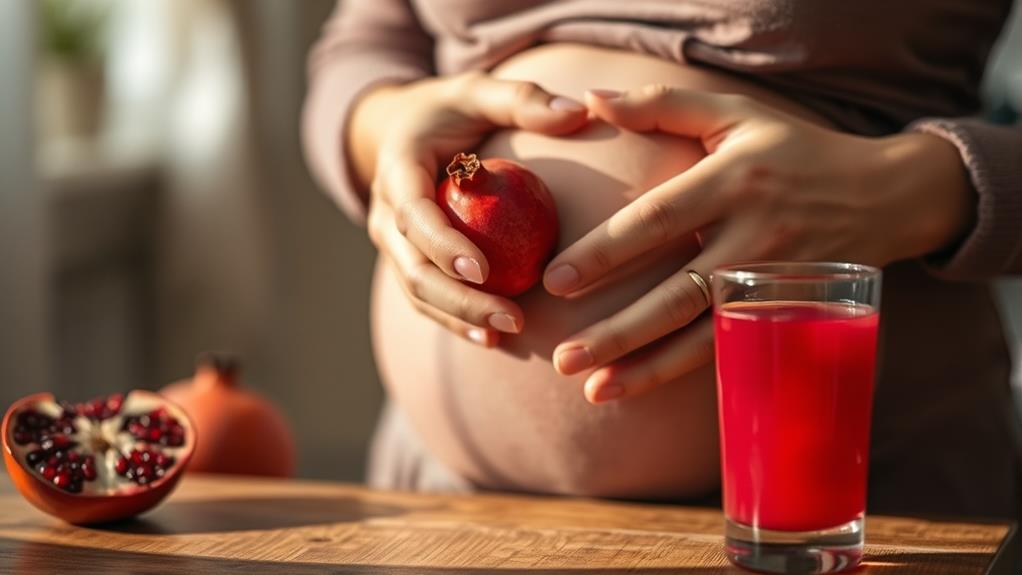
Pomegranate is generally safe for most people, but potential allergies and reactions can still occur. Some folks might find that they're allergic to pomegranates or the juice. If you notice any signs like itching, swelling, or trouble breathing after eating pomegranate, it's best to stop eating it and talk to your doctor. Allergies can be sneaky, and they don't always show up right away.
You might also experience some stomach upset if you're not used to eating pomegranates. If you've got a sensitive tummy, it's a good idea to start with a small amount and see how your body reacts. And let's be honest, nobody wants to deal with a bloated belly while trying to enjoy a tasty snack!
As for juice, some brands add extra sugars or preservatives, which can lead to other reactions. Always check the label to make sure you're getting the good stuff!
If you're unsure about anything, especially during pregnancy, it's wise to consult your healthcare provider. After all, it's better to be safe than sorry when you're munching on delicious pomegranate seeds!
How to Incorporate Pomegranate
Looking to add some vibrant flavor and nutrition to your pregnancy diet? Pomegranates are a fantastic choice! These juicy gems aren't only delicious but also packed with vitamins and antioxidants. You can enjoy them in various ways.
First, try tossing fresh pomegranate seeds into your morning yogurt or oatmeal. They'll add a delightful crunch and a burst of sweetness. If you're feeling adventurous, blend some pomegranate juice into your smoothies. It'll give your drink a beautiful color and taste that'll make you smile.
You can also make a revitalizing salad. Just sprinkle those ruby-red seeds over greens with a drizzle of olive oil and lemon juice. It's a simple way to impress your taste buds!
Want something even sweeter? Use pomegranate juice as a base for a homemade popsicle. Just pour the juice into molds, freeze, and enjoy a cool treat on a hot day.
Expert Opinions on Safety

When considering pomegranates in your pregnancy diet, it's essential to consult expert opinions on their safety. Many healthcare professionals say that pomegranates are generally safe to eat.
They're packed with nutrients like vitamin C and antioxidants, which are great for you and your growing baby. Eating them in moderation is key, though.
Some experts suggest you should stick to fresh pomegranates or 100% pomegranate juice, avoiding any sugary or artificial additives. Too much sugar isn't great for you during pregnancy, and it can lead to complications.
Doctors also recommend that if you have any allergies or conditions, like gestational diabetes, you should talk to your healthcare provider before adding pomegranates to your diet. They can give you the best advice tailored to your situation.
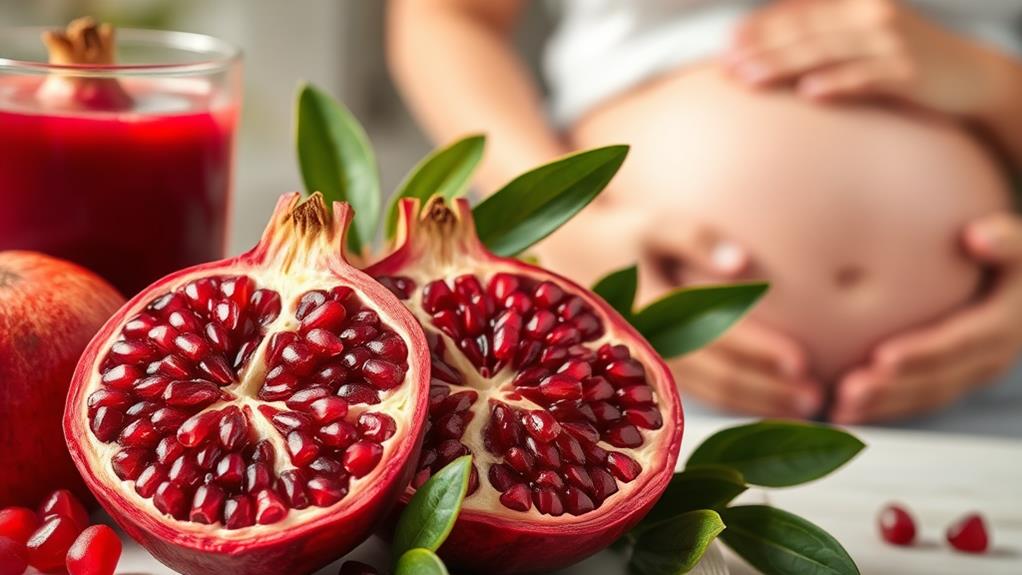
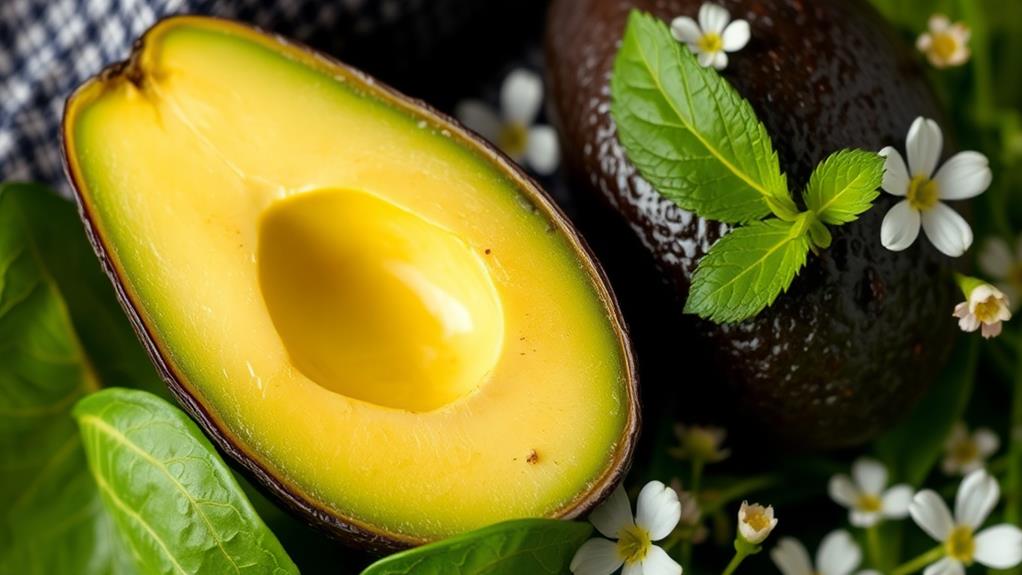
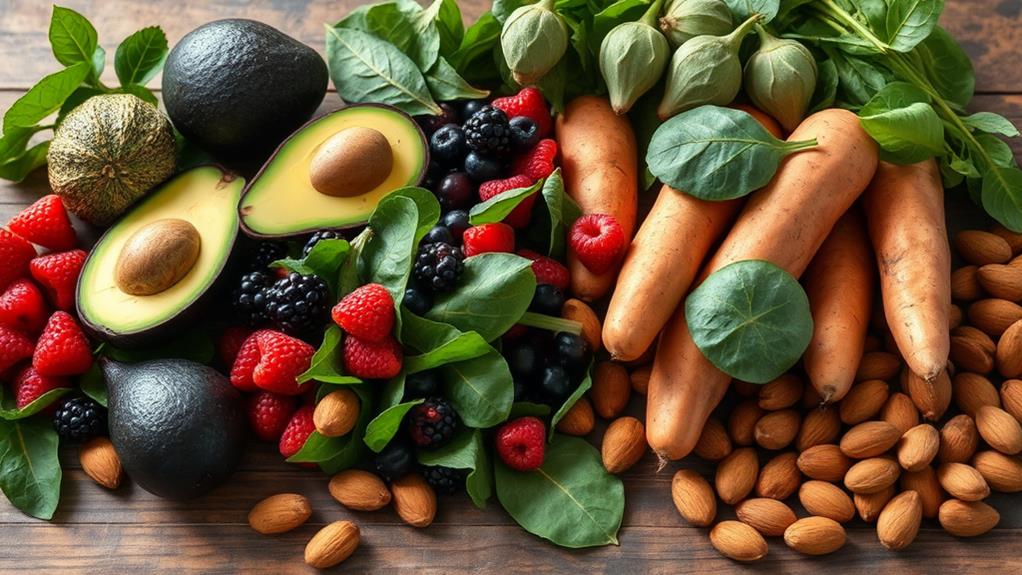











Post Comment